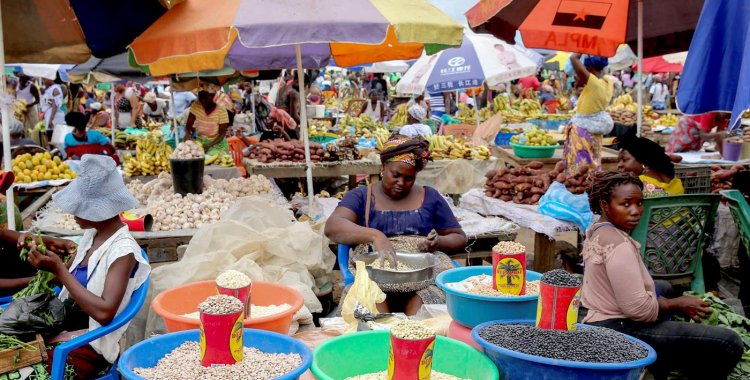According to the Secretary of State for Planning, Milton Reis, Angola, despite being a net exporter of energy "commodities", "is not immune to the effects of this conflict".
"The impacts of the current crisis are already being felt in the increase in the prices of foodstuffs and refined fuels, which imply a higher level of subsidy by the State", said the minister, in Luanda, this Monday.
"Another indicator where Angola could feel the impact is the increase in interest rates in the international market with a direct impact on the cost of financing and debt service", stated Milton Reis.
The Secretary of State, who was speaking at the opening ceremony of the presentation of the IMF's Report on the Regional Economic Prospects of Sub-Saharan Africa, assured that the authorities had taken "urgent measures", in the course and medium term, to mitigate the effects of the crisis.
In the short term, "we highlight the implementation of the Strategic Food Reserve (REA), as an instrument of economic policy to reduce the prices of essential goods of high consumption by the populations and reduce inflation", he pointed out.
The latest data indicate that inflation at the end of 2022 could be around 15 percent, he stressed.
The implementation of the national plans for the Promotion of Grain Production (Planagrão), the Promotion and Development of Livestock and the Promotion of Fisheries (Planapescas) are among the actions to be implemented in the medium term to increase domestic production.
The three plans are expected to increase, over the next five years, the production of cereals, promotion of livestock, fisheries and aquaculture.
Planagrão will focus on the production of cereals, promotion of livestock, fisheries and aquaculture and Planapescas will focus on the promotion of business fishing activity and increase the production and processing of fish and salt "to ensure food security".
In his speech, at the meeting held by the International Monetary Fund (IMF) and the National Bank of Angola (BNA), Milton Reis also made it known that the National Development Plan (PDN) 2023-2027 is already being prepared.
The PDN 2023-2027, he explained, will focus on three priority areas, namely human capital, the expansion of infrastructure and the diversification of the economy.
Regarding human capital, "the emphasis will be on education, health, employment, entrepreneurship and professional training, infrastructure will focus on mobility, transport, logistics, housing, energy and water", he said.
And the third focus is the diversification of the economy with an emphasis on "improvement of the business environment, agriculture, livestock, fisheries, tourism and also the manufacturing industry".
An average real growth of Gross Domestic Product (GDP) in the order of 3.6 for the period 2013-2027 are the Government's forecasts, "with the non-oil sector growing on average by 4.6 percent"
"It is therefore the great locomotive for economic growth in the next five years", he argued.
The performance of the oil sector, "which is expected, should be ensured by the sectors of agriculture, livestock and forestry, fisheries, industry, commerce, tourism and also services, which on average grew by more than 5 percent per year".
As for the IMF report, the Secretary of State said that the group of countries in Sub-Saharan Africa has an "enviable potential" in the livestock, industry, fisheries, agriculture and tourism sectors "and, in many cases, still to be explored what should focus our attention to transform that potential into real wealth".
"We are also convinced that the implementation of the African economic free trade zone will reduce dependence on markets outside the region (...)", he stressed.
"Short-term prospects are extremely uncertain as the performance of African economies is linked to the behavior of the global economy," said Milton Reis.
Angola is the second largest oil producer in Sub-Saharan Africa after Nigeria.







